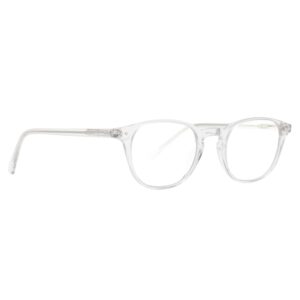
- Vitamins A, C, E, and the B complex are crucial for maintaining eye health.
- Omega-3 fatty acids, lutein, zeaxanthin, and zinc play significant roles in supporting visual acuity and protecting against eye diseases.
- Antioxidants help combat oxidative stress, which can damage the eyes over time.
- Supplements can be a beneficial addition to a balanced diet, particularly for individuals at risk of nutrient deficiencies.
- Always consult with a healthcare provider before starting any new supplement regimen to ensure it’s safe and appropriate for your individual health needs.
Unlocking the Power of Top Vision Supplements and Vitamins for Your Vision
When it comes to maintaining sharp sight, it’s not just about what you see—it’s also about what you eat. Vitamins and minerals are the building blocks that support not only your overall health but specifically your eye health. Let’s dive into which vitamins are essential and why they matter for your vision.
What Are the Top Vision Supplements and Vitamins That Are Key for Eye Health?
Vitamins A, C, E, and the B complex are like the superheroes of eye health. They each have unique powers that contribute to maintaining your vision. For instance:
- Vitamin A is renowned for its role in supporting good vision, especially in low light conditions. It’s also essential for the health of your cornea, the clear front layer of your eye.
- Vitamin C is an antioxidant that helps protect your eyes against damage from free radicals, and it’s vital for the health of the blood vessels in your eyes.
- Vitamin E also acts as an antioxidant, protecting the cells in your eyes from the damaging effects of oxidative stress.
- The B complex vitamins, including B6, B9 (folate), and B12, can help reduce levels of homocysteine, a protein that may be associated with inflammation and an increased risk of developing age-related macular degeneration (AMD).
How Vitamins Support Visual Acuity
These nutrients are not just important for preventing deficiencies; they actively support your visual acuity. Visual acuity is the sharpness of your vision, which allows you to see fine details clearly. Antioxidant vitamins like C and E combat the oxidative stress that can blur your vision over time. Vitamin A helps keep the surface of your eye (the cornea) clear. Without enough vitamin A, you could not only see a decline in vision quality but also become more susceptible to eye infections.
Natural Nutrients and Eye Protection
While vitamins are essential, there are other nutrients that play a crucial role in eye health. They help form a natural defense against the onset of vision issues and bolster the health of your eyes from the inside out.
Antioxidants and Their Role in Eye Care
Antioxidants are like your personal bodyguards, fighting off potential damage from pollution, sunlight, and the natural aging process. They are found in many foods but can also be taken as supplements to ensure you’re getting enough. Here’s how they help:
- They protect against oxidative stress, which can damage the sensitive tissues in your eyes.
- They help maintain healthy cells and tissues in the eye, including the retina and macula, which are crucial for vision.
- By reducing inflammation, they can protect against eye diseases that can lead to vision loss.
Besides that, Omega-3 fatty acids, which are found in fish oil, flaxseed, and walnuts, are known for their anti-inflammatory properties and are particularly beneficial for dry eye syndrome and retinal health.
Exploring the Benefits of Omega-3 for the Eyes
Omega-3 fatty acids are not just good for your heart; they’re also good for your eyes. They are vital for cell membranes, including those in the eye, and can help prevent macular degeneration, one of the leading causes of vision loss. The body does not produce Omega-3s, so they must be obtained through diet or supplements. If you’re not a fan of fish or are concerned about mercury exposure, fish oil supplements can be an effective way to ensure you’re getting enough of these important fatty acids.
Lutein and Zeaxanthin: Natural Sources vs. Supplements
When we talk about eye health, two nutrients often stand out: lutein and zeaxanthin. These carotenoids are found in high concentrations within the macula, the part of the eye responsible for central vision. They act as natural sunglasses, filtering harmful blue light and protecting the eyes from damage.
Naturally, you can find lutein and zeaxanthin in green leafy vegetables like spinach, kale, and collard greens, as well as in eggs and corn. However, if your diet lacks these foods, supplements can help fill the gap. The question is, should you rely on natural sources or consider supplements? The answer largely depends on your individual dietary habits and specific health needs.
Zinc: The Essential Mineral for Sight
Zinc is a trace mineral that plays a vital role in transporting vitamin A from the liver to the retina, aiding in the production of melanin, a protective pigment in the eyes. This mineral is essential for maintaining the health of the retina and may help prevent night blindness and cataracts.
Why Your Eyes Need Zinc
Zinc is crucial for the enzyme reactions necessary for proper eye function, and a deficiency can lead to impaired vision. It’s also important for immune function, which helps protect the eyes from infection or inflammation that can affect vision.
Best Dietary Sources of Zinc for Vision
While oysters pack the highest punch of zinc, other good dietary sources include beef, pumpkin seeds, and peanuts. For vegetarians or those who prefer not to eat meat, legumes and whole grains are also good options, though it’s important to note that the zinc from plant sources is not as easily absorbed by the body as the zinc from animal products.
Integrating Supplements into Your Daily Regimen
Adding supplements to your diet is a practical way to ensure your eyes are getting the nutrients they need. But before you start, it’s important to know how to do so safely.
Guidelines for Safe Supplement Usage
First and foremost, talk to your healthcare provider before beginning any supplement regimen. They can help you understand which supplements and dosages are right for you. It’s also important to purchase supplements from reputable sources to ensure quality and safety. Remember, supplements are meant to complement your diet, not replace it.
Creating a Personalized Eye Health Supplement Plan
Everyone’s health needs are different, which means your supplement needs will be unique to you. Consider factors like your dietary habits, any existing health conditions, and your family’s eye health history when choosing supplements. A healthcare provider or a dietitian can help you develop a plan that’s tailored to support your eye health effectively.
Monitoring the Effects: When to See Results
Improving eye health with supplements is not an overnight solution. It’s a long-term investment in your vision. But how do you know if it’s working?
- Keep regular appointments with your eye care professional to monitor your eye health.
- Pay attention to any changes in your vision, such as improvements in sharpness or contrast.
- Note any reduction in eye fatigue, especially if you spend long hours in front of a screen.
Setting Realistic Expectations for Improvement
It’s important to set realistic expectations. Supplements can support eye health and potentially improve vision, but they’re not magic pills. The effects will vary depending on factors like your age, the condition of your eyes, and how consistent you are with taking the supplements.
Tracking Progress in Eye Health
Keeping a vision diary can be helpful in tracking changes over time. Note any improvements in day-to-day activities, such as reading or driving, and discuss these changes during your eye exams. This information can provide valuable insights into the benefits of your supplement regimen.
Frequently Asked Questions
As we delve into the world of eye health supplements, it’s natural to have questions about their efficacy and safety. Here are some common questions answered to help you navigate your journey to better vision.
Can Supplements Truly Improve Vision?
Yes, supplements can contribute to better eye health and potentially improve vision, especially in individuals who have specific nutrient deficiencies. However, it’s essential to understand that they are not a cure-all. They work best when combined with a healthy diet and lifestyle, regular eye exams, and following your eye care professional’s recommendations.
Are There Any Side Effects of Taking Eye Health Supplements?
Generally, eye health supplements are safe when taken as directed. However, taking too much of certain vitamins and minerals can cause side effects. For example, excessive intake of vitamin A can lead to toxicity. Always adhere to the recommended dosages and consult with your healthcare provider before starting any new supplement.
How Long Does it Take for Supplements to Affect Vision?
The effects of supplements on vision can vary widely among individuals. It may take several weeks to several months to notice improvements, and some people may experience more subtle changes than others. Consistency is key, and it’s important to maintain a balanced diet and healthy lifestyle alongside supplementation for the best results.
Should Children Take Supplements for Eye Health?
Children’s nutritional needs can usually be met through a balanced diet rich in fruits, vegetables, whole grains, and proteins. However, in certain cases, such as dietary restrictions or specific health concerns, a pediatrician may recommend supplements. Always consult a healthcare provider before giving any supplements to a child.
- Consult with a pediatrician before starting supplements for children.
- Ensure supplements are age-appropriate and follow the recommended dosages.
- Consider potential dietary sources first, such as colorful fruits and vegetables.
Supplements for children should be considered with care and used as part of an overall strategy for maintaining eye health, which includes outdoor play and limiting screen time.
Can Eye Supplements Help with Computer Vision Syndrome?
Supplements containing lutein and zeaxanthin may help mitigate some symptoms of Computer Vision Syndrome (CVS), such as eye strain and fatigue, by improving the macular pigment density. Omega-3 supplements can also help alleviate dry eyes associated with prolonged screen use. However, it’s also important to practice good screen habits, like taking regular breaks and ensuring proper lighting.
Remember, the journey to improved eye health is a holistic one, involving diet, lifestyle, and sometimes supplements. Stay informed, consult professionals, and take proactive steps towards maintaining your vision. Your eyes will thank you.


